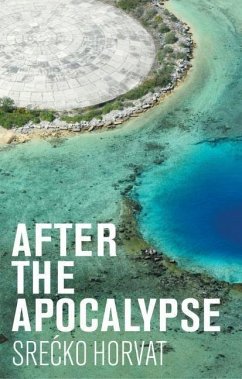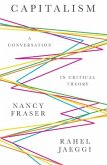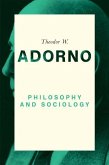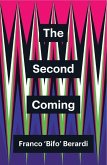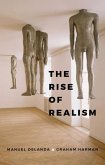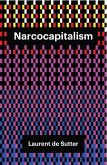In this post-apocalyptic rollercoaster ride, philosopher Srecko Horvat invites us to explore the Apocalypse in terms of 'revelation' (rather than as the 'end' itself). He argues that the only way to prevent the end - i.e., extinction - is to engage in a close reading of various interconnected threats, such as climate crisis, the nuclear age and the ongoing pandemic. Drawing on the work of neglected philosopher Günther Anders, this book outlines a philosophical approach to deal with what Horvat, borrowing a term from climate science and giving it a theological twist, calls 'eschatological tipping points'. These are no longer just the nuclear age or climate crisis, but their collision, conjoined with various other major threats - not only pandemics, but also the viruses of capitalism and fascism. In his investigation of the future of places such as Chernobyl, the Mediterranean and the Marshall Islands, as well as many others affected by COVID-19, Horvat contends that the 'revelation' appears simple and unprecedented: the alternatives are no longer socialism or barbarism - our only alternatives today are a radical reinvention of the world, or mass extinction.
After the Apocalypse is an urgent call not only to mourn tomorrow's dead today but to struggle for our future while we can.
Hinweis: Dieser Artikel kann nur an eine deutsche Lieferadresse ausgeliefert werden.
After the Apocalypse is an urgent call not only to mourn tomorrow's dead today but to struggle for our future while we can.
Hinweis: Dieser Artikel kann nur an eine deutsche Lieferadresse ausgeliefert werden.
'Moneymen think of wars, earthquakes and pandemics as opportunities for exorbitant profiteering. Srecko Horvat, a personal hero of mine, has detected their new predilection: commodification of the Apocalypse, which they fear less than they do the end of capitalism.'
Yanis Varoufakis, author of Another Now: Dispatches from an Alternative Present
'Srecko Horvat plays with the idea of Apocalypse in such a way that our sense of the end of times is transformed and becomes manageable. He takes the ball from great minds of the past and scores a goal for those who are certain that humanity can do better than this.'
Ece Temelkuran, author of How to Lose a Country
Yanis Varoufakis, author of Another Now: Dispatches from an Alternative Present
'Srecko Horvat plays with the idea of Apocalypse in such a way that our sense of the end of times is transformed and becomes manageable. He takes the ball from great minds of the past and scores a goal for those who are certain that humanity can do better than this.'
Ece Temelkuran, author of How to Lose a Country

